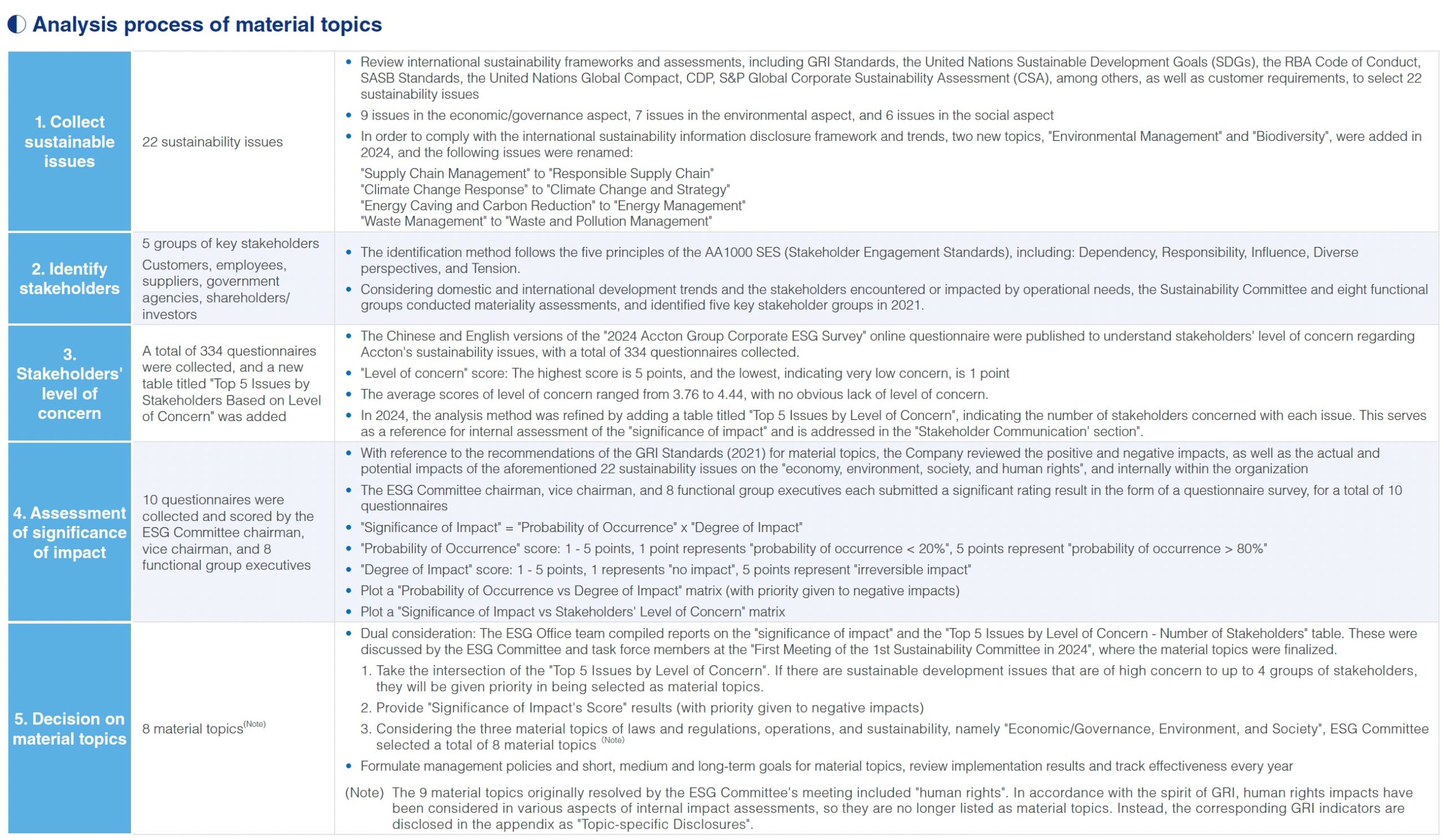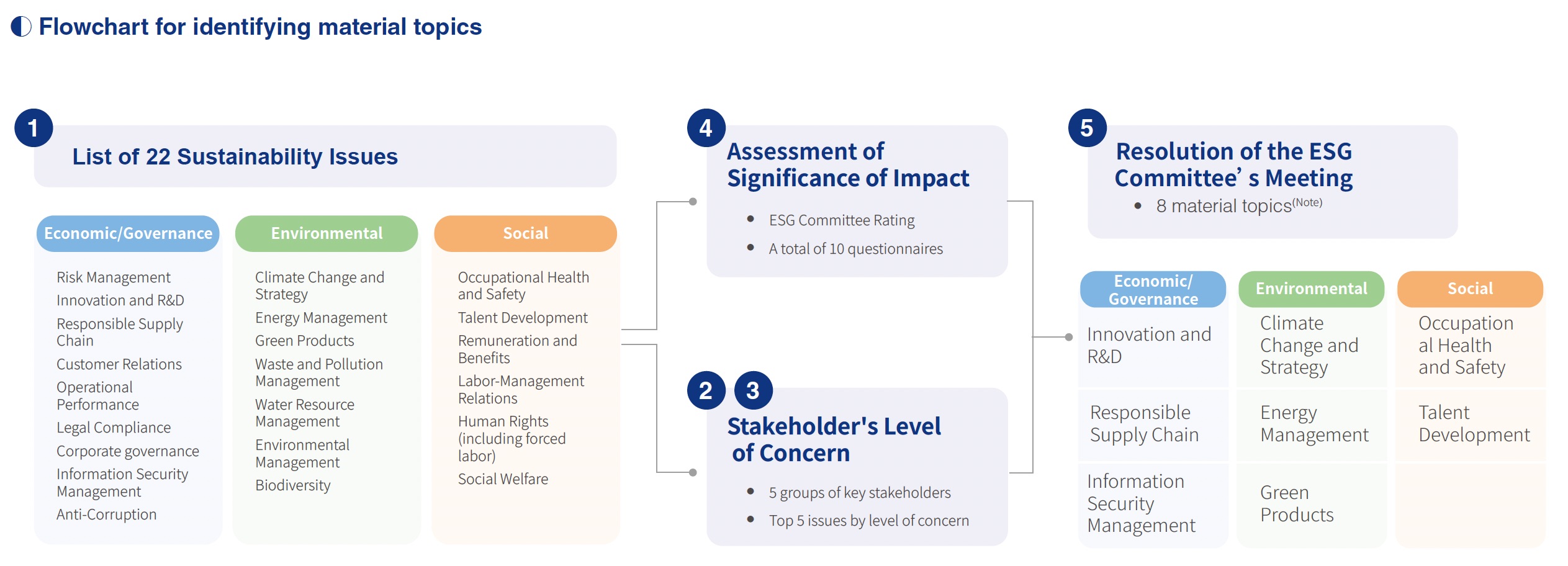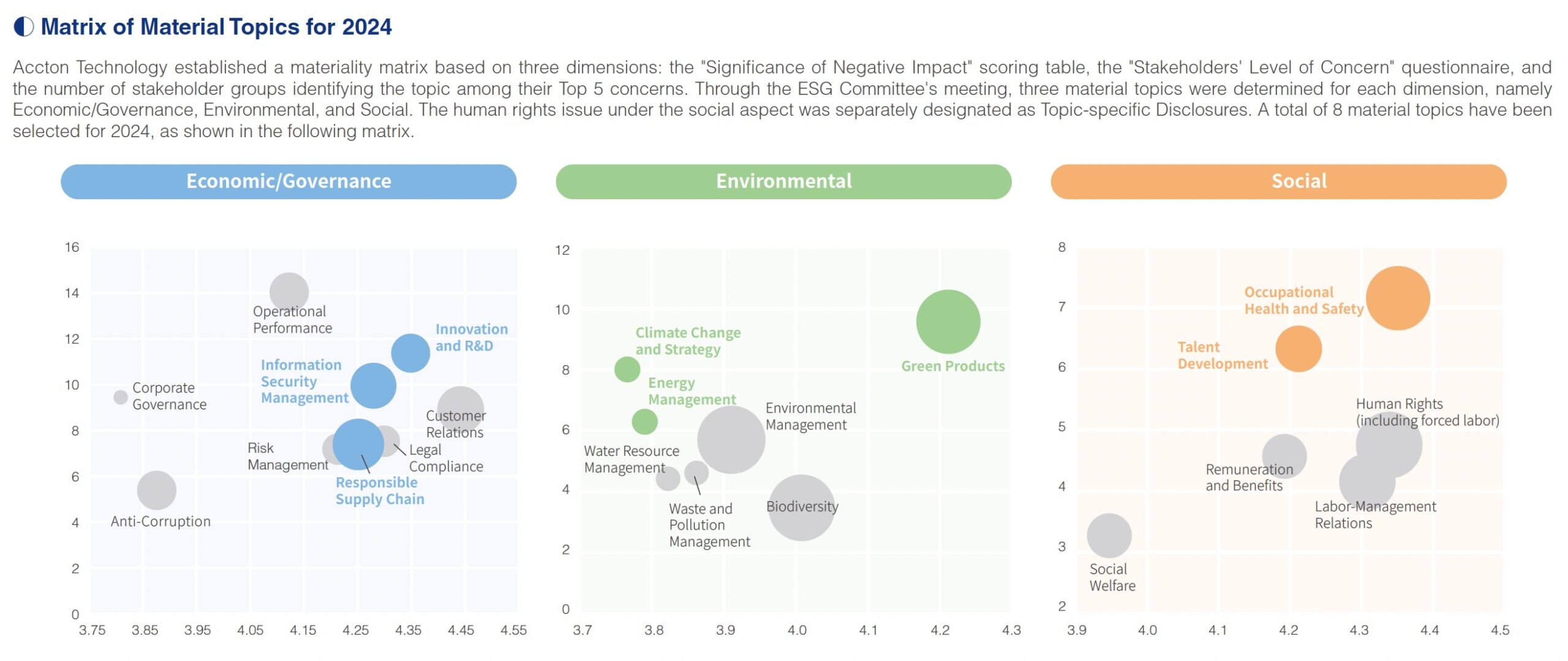Material Topics & Stakeholder Engagement
Stakeholder Engagement
Accton communicates with customers, employees, suppliers, government agencies, and shareholders/investors through various channels. Based on the results of the questionnaire survey on sustainability issues, we have listed the major sustainability issues, about which the five major stakeholders are most concerned, the engagement methods, and the methods adopted to respond to each issue below, with a description of the actions we have taken in sustainability management and outcome.
Stakeholder
Communication Method/Frequency
Issues of Concern
Accton’s Response and Results
✉️ Email: [email protected]
✉️ Email: [email protected]
✉️ 聯絡信箱 [email protected]
✉️ Email: [email protected]
✉️ Financial Information: [email protected]
✉️ Non-financial Information: [email protected]
Stakeholder Engagement and Materiality Analysis
Stakeholder engagement and Response
We communicate with clients, employees, suppliers, government agencies, shareholders/investors, and non-profit organizations (NPO) through a variety of channels. As per the results of the questionnaire survey on ESG issues, we have listed the major ESG issues, about which the six major stakeholders are most concerned, the engagement methods, and the methods adopted to respond to each issue below, with a description of the actions we have taken in sustainability management and outcome.






